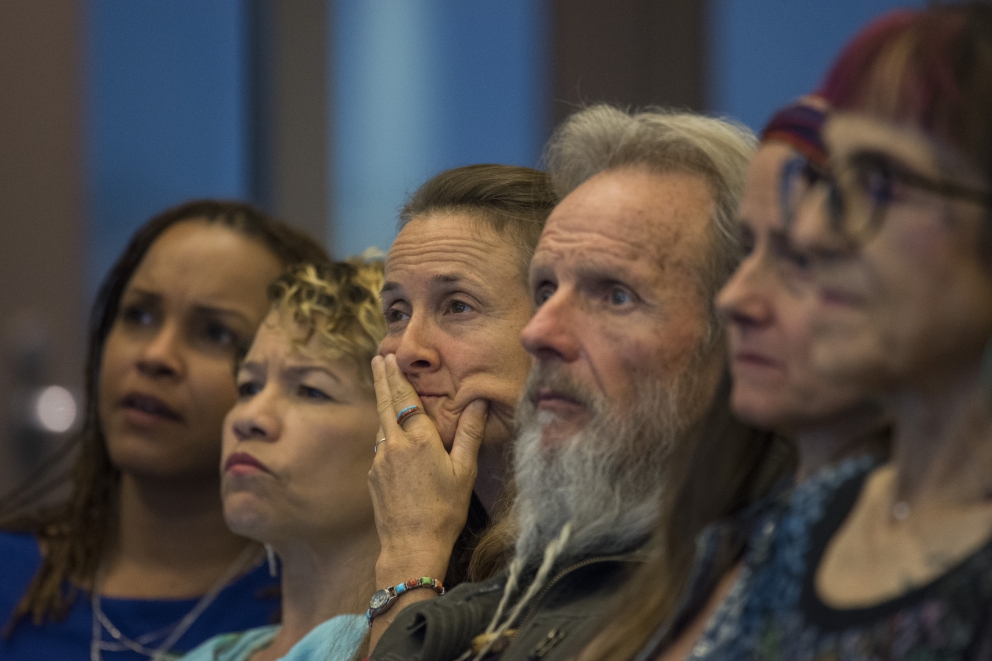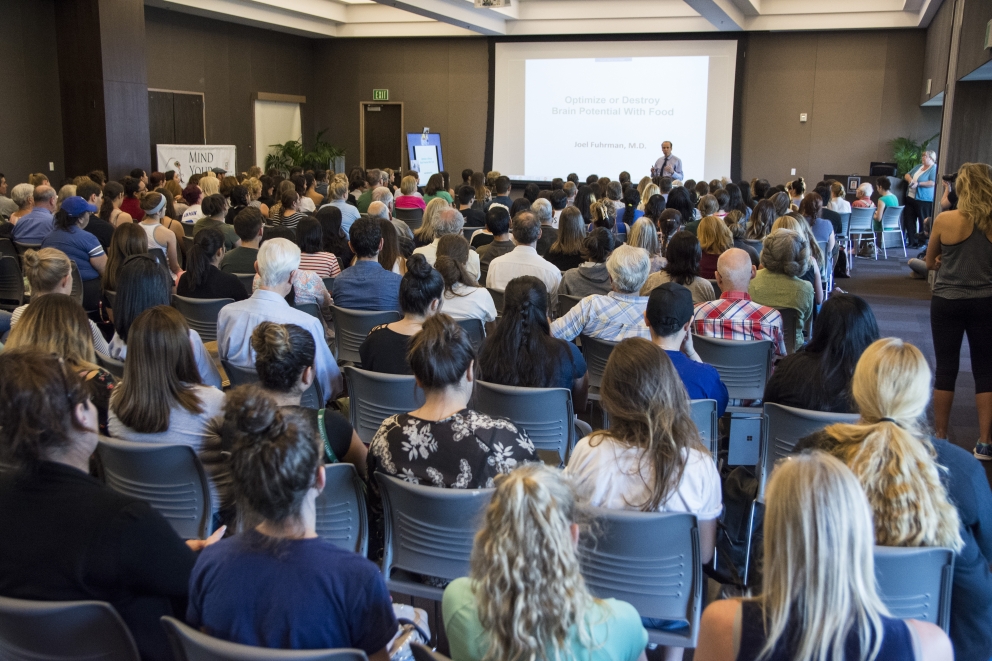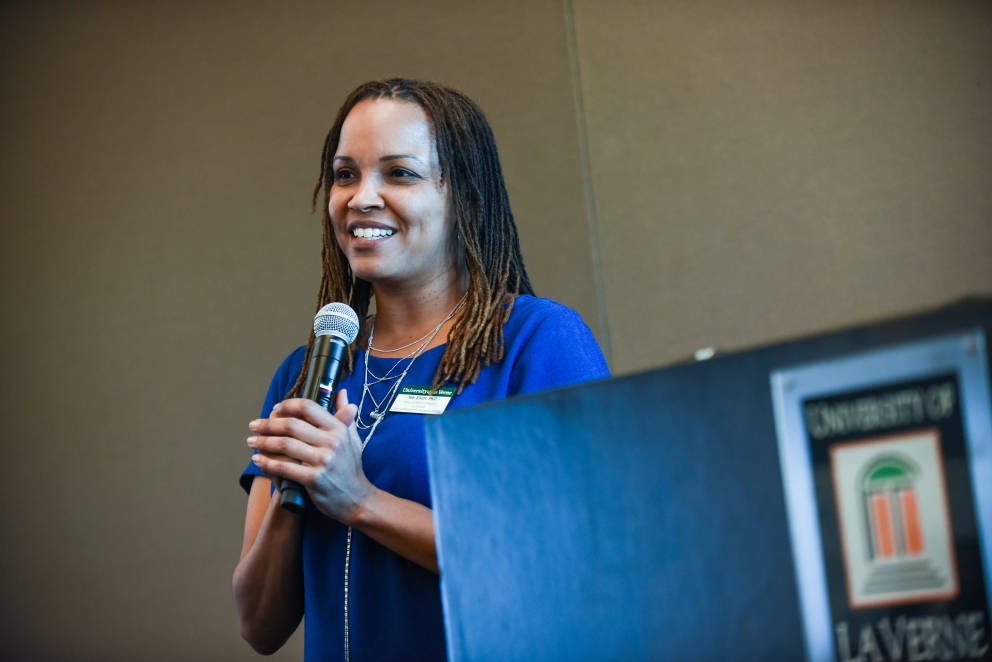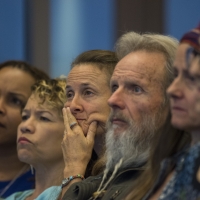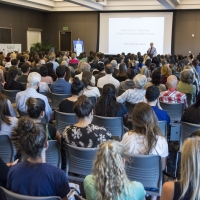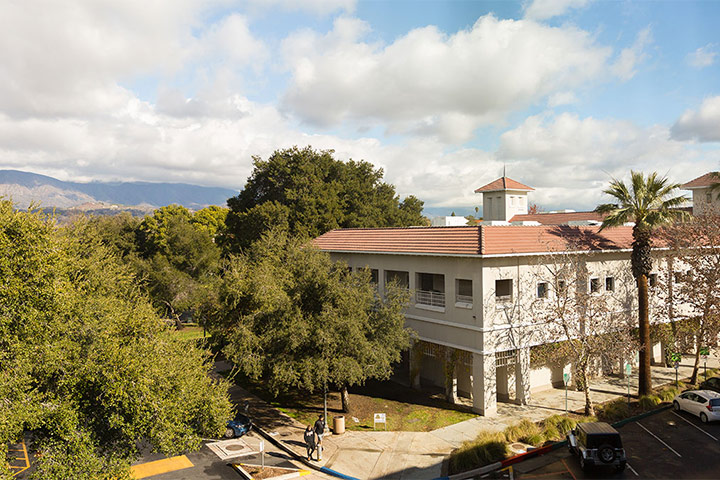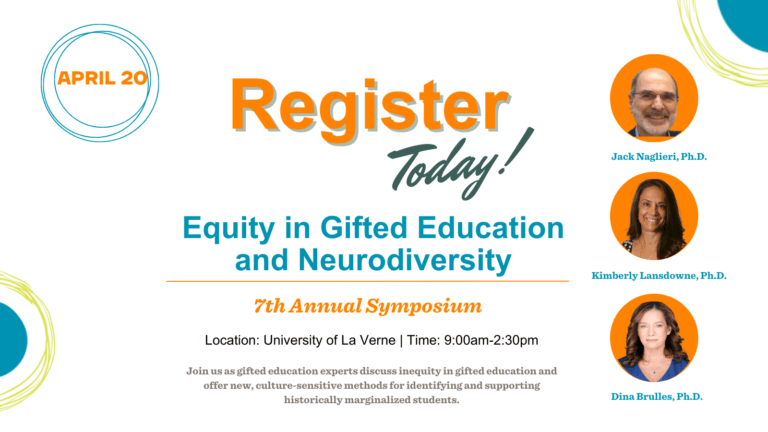Dr. Joel Fuhrman Visit at University of La Verne Attracts More than 200
More than 200 people crowded into the University of La Verne’s Abraham Campus Center on Oct. 26 to hear world-renowned nutritionist Dr. Joel Fuhrman discuss America’s addiction to unhealthy food, and how it is linked to learning disabilities, aggression, and disease.
Fuhrman’s two-hour talk was organized by the university’s Center for Neurodiversity, Learning, and Wellness, and was part of the LaFetra College of Education’s Social Justice Lecture Series.
The celebrity doctor said the prevalence of ailments such as heart attacks, strokes, diabetes, cancer, dementia, and depression can be tied directly to fast and processed foods, which have overtaken the average American diet. Those illnesses could be eradicated, and people could discover a virtual fountain of youth, by instead eating micronutrient-rich green vegetables, nuts, seeds, berries, and beans, Fuhrman said.
“Many people don’t know the extent of the damage being caused,” he said. “They don’t know, for example, that in urban areas called food deserts, where people are getting most of their calories from fast and processed foods, there is seven times the chance of stroke before age 45.”
Fuhrman is a board-certified family physician and the author of six New York Times best-selling books including his most recent release, Fast Food Genocide. He has made hundreds of radio and television appearances, including “The Dr. Oz Show,” the “Today” show, and “Good Morning America.”
Throughout his lecture, Fuhrman explained how the human body breaks down food into energy. Fast food and processed food can flood the body with sugar, fat, and chemicals that create addictions and trigger near-constant hunger, he said.
More natural foods, like nuts, beans, and berries, are nutrient-rich, digest slowly, and foster stable metabolisms that allow the body to naturally heal itself, he said.
In addition to linking fast food to poor health, Fuhrman said connections are also being made between diets and aggression, crime, intelligence, school performance, and drug abuse.
But the news is not all grim, he said.
“When you know this information, you can protect our population and save needless tragedy from happening all around us,” he told guests.
The University of La Verne’s Center for Neurodiversity, Learning, and Wellness, supports students with autism, dyslexia, attention-deficit/hyperactivity disorder, and other conditions that reflect neurological diversity in society. The center provides workshops, coaching, and tutoring services to help these learners participate fully in society by recognizing and leveraging their strengths.
The LaFetra College of Education’s Social Justice Lecture Series continues on Nov. 29 with a talk by Rich Milner, the director of the Center for Urban Education at the University of Pittsburgh. Milner will lead a workshop for scholars on how to build a portfolio, bridge teaching and research, and cultivate a professional identity.
